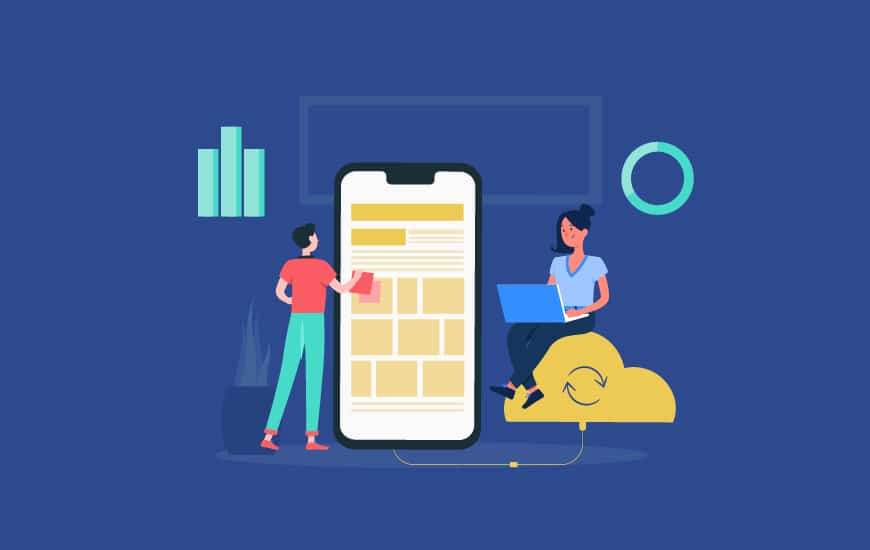Can Big Data and AI Finally Improve Mobile App Safety?
Mobile app usage continues to rise. From mCommerce apps to social media apps, the average person spends 4.8 hours per day on mobile apps. They’ve somewhat revolutionized the way we use our cell phones. In the Google Play Store, there are 3.48 million apps, and in the Apple App Store, you’ll find 1.96 million apps to choose from. Let’s explore why so many of those apps have security issues and whether it could be Big Data or Artificial Intelligence (AI) that can solve the problem.
Why Mobile Apps Are Prone To Hacks
According to one report, 90% of retail apps on the Google Playstore and 35% on the Apple App Store have been compromised. There are numerous factors contributing to the inherent vulnerabilities of mobile apps. One of them is weaknesses in the coding often caused by app developers under pressure to meet time and financial constraints. Application security testing can and does help, but the underlying coding – especially if it’s open-source coding software used to create the app.
Another factor in play is the lure of financial and personal data stored on mobile apps that hackers want to get their hands on. For example, mCommerce apps like retail apps typically hold card details and personal information for deliveries, creating a gold mine for cyber attackers. Couple this with the fact that many mobile apps have weak coding and multiple other vulnerabilities that make them easy to infiltrate, and it’s easy to see why retail apps, in particular, are the target for hackers.
One final issue stems from the sheer number of apps available and user misinterpretation. Not every app on the app store is legitimate or designed using mobile app development services. Many games, for example, are low quality and full of design vulnerabilities that make them easy to hack. Couple this with unsuspecting users simply wanting to play a game and inputting their personal data to do so, and you’ve got yourself a sitting target for awaiting hackers.
How can big data and AI help? Let’s take a look.
What’s Big Data?
Before understanding how the two can help, it’s first essential to understand what the two are in the context of mobile apps. Big data refers to data sets that are too large or complex to process using traditional data processing methods. The three V’s of big data are velocity, volume, and variety – for data to constitute big data, it has to have more of all three of the V’s.
The problem with big data is that, as the name suggests, it’s so big. Companies have to find the value in the data and extract what’s necessary to get the most out of the information.
What’s AI?
AI is intelligence demonstrated by machines – a concept unimaginable 20 years ago. But today, the uses of artificial intelligence spread far and wide and continue to develop day by day. Businesses can use it to create personalized adverts or to determine buyer habits, for example. AI can power online chatbots, autonomous flying, manufacturing processes – the list could go on.
Companies are now interested in building machines that use artificial intelligence to become more in tune with human emotions and thinking. Some computers can now recognize physical objects using artificial intelligence.
How Can The Two Improve Mobile App Security?
How can two different ways of using data contribute to the improved safety of mobile apps? Let’s start with big data. The mass amounts of data collected into big data sets can provide developers with invaluable information about the behavioral patterns of users to search for loopholes that might be causing security vulnerabilities. For example, the data can provide information about how people input their personal data and if this contributes to hacks.
Big data can also help developers unearth issues with the app and implement the necessary changes to improve the app performance. App bugs are one of the top causes of hackers gaining easy access to the app as bugs typically lead to vulnerabilities.
AI can operate similarly. AI learns behavior and can provide valuable insights into user behavior that may be contributing to an increase in app hacks. Some developers have begun using AI to send notifications to users about vulnerabilities that it recognizes based on the previous hacks. For example, when users create a new password, AI can determine weaknesses and ask the user to create a stronger password.
AI also shows strengths in highlighting security issues to developers by recognizing patterns in weak coding. Additionally, it can help improve the overall performance power of apps for the user, similar to big data. By analyzing user behaviors, AI can suggest more intuitive ways of using the app and enhance the overall user experience.
Mobile app usage is increasing daily, with an average of 3,739 joining the app store each day. Such a large volume of apps added to the Play Store each day begs the question of quality and security – not every app will have a professional developer at the helm. But with the use of big data and AI, app security and improved usability can become the norm.


























